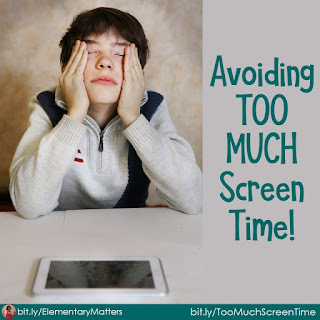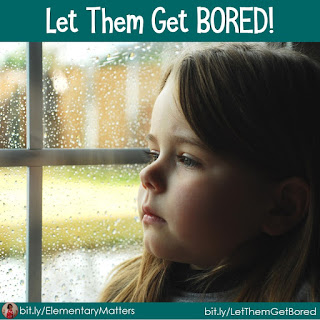The brain automatically wants to sort ideas into patterns and categories. This helps the brain organize and remember information.
Once they're in school, they're learning a whole lot more categories in all the different subject areas: math (shapes, numerical systems) science (animals, plants, systems) social studies (countries, history, geography) writing (narrative, expository, persuasive)
And, of course, we all know about the Dewey Decimal system!
As we get older, categories help us keep track of our lives, both pleasure and business! Think of the categories involved in sports, TV shows and movies!
And of course, our daily budgets are in categories.


When we encourage children to think of categories and patterns, we can increase their ability to make logical connections, draw conclusions, and make predictions.
Categorizing helps children process information. By sorting items into categories, we are helping them develop deeper meanings and understandings.
Even toddlers start to sort their toys! Sorting by color, shape or size are popular activities for the younger set. As they get older, they start to sort more items to help understand their life: numbers, letters, foods, books, and even trash.
And, of course, we all know about the Dewey Decimal system!
As we get older, categories help us keep track of our lives, both pleasure and business! Think of the categories involved in sports, TV shows and movies!
And of course, our daily budgets are in categories.
So, it's pretty clear that our brains need to be able to sort our lives in to categories. Yes, this is a life skill!
How can we help children develop these skills? Well, here are a few suggestions:
1. Be a role model! When you are organizing something, not only let them watch you, but also let them hear your reasoning. As you're picking up, talk about what you're doing...I'm going to put this paper on these shelves because this is where the writing materials go, or I'll put this book with the other informational books.
2. Let them join in! At home, let them help you sort laundry, put dishes away or tidy up the playroom. At school, let them suggest ways to organize the books or the math materials. Get them thinking, and value their ideas. It's amazing what they can come up with!
3. Let them practice sorting! Attribute blocks are a great way to sort by attribute, since each block has several attributes!
The image below has an affiliate link to Amazon (I get a few cents, it doesn't cost you a thing!)

One of my favorite activities for the kids with these blocks is the "Attribute Train." It works like this:
- The first person puts down any block.
- The second person puts a block next to it that is different in only one way.
- Play continues, with players putting down blocks in a "train", with only one change per block.
- Keep playing until no more blocks can be played.
The kiddos absolutely LOVE this game, and will play it over and over, keeping them thinking!
Want another way to get them thinking about sorting and categorizing, and think about important vocabulary as well? Try some of these Boom Learning Digital Task Cards!




































